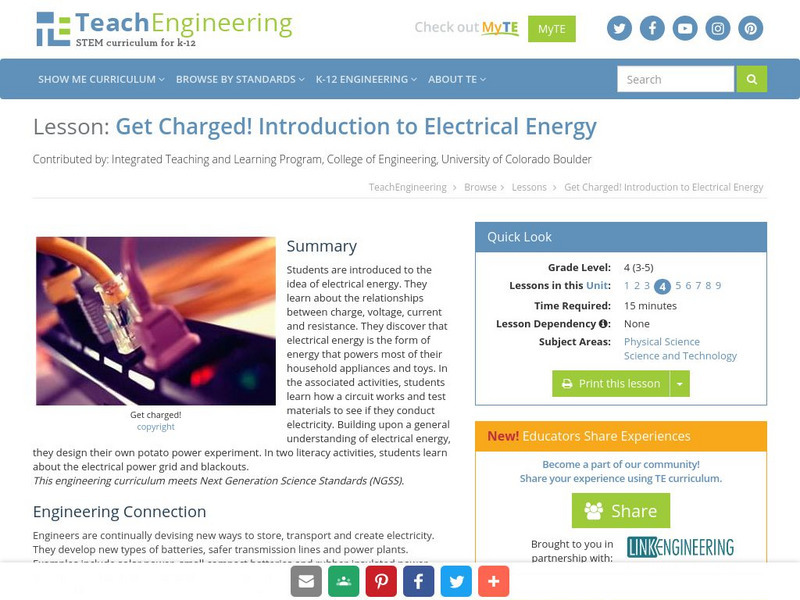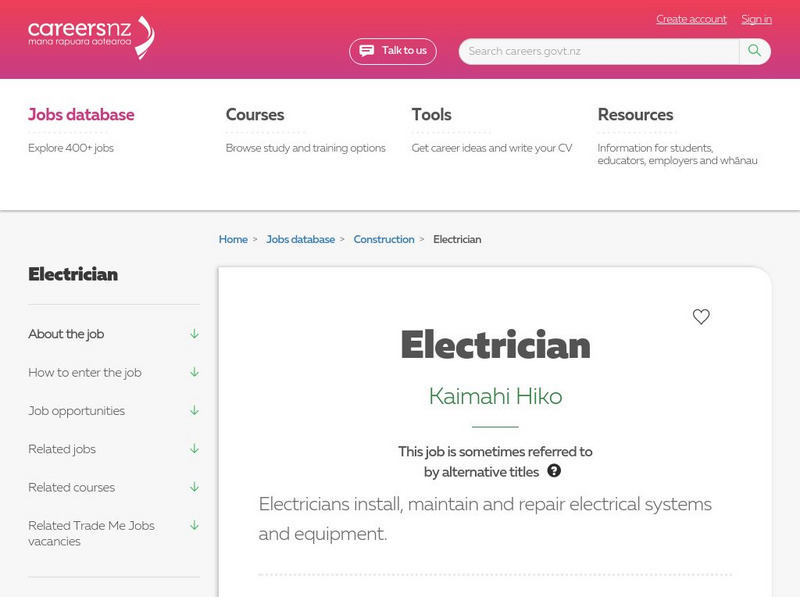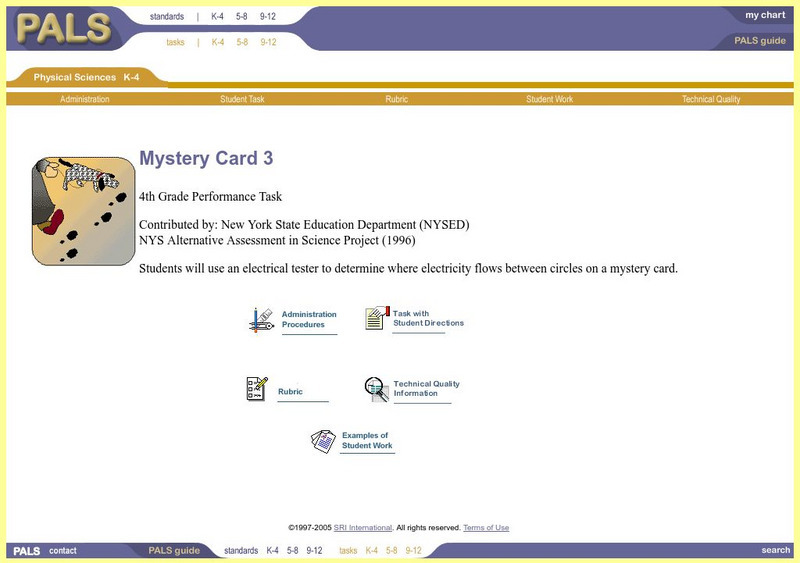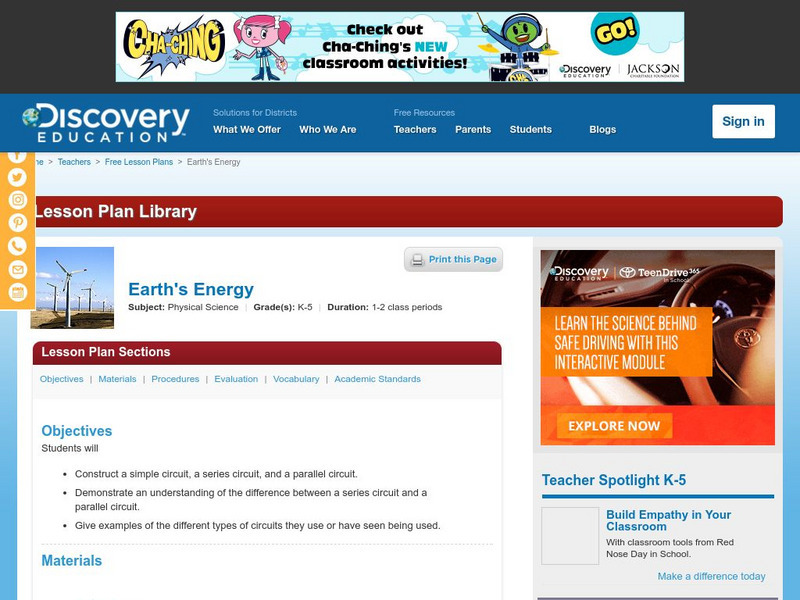Hi, what do you want to do?
Open Curriculum
Open Curriculum: Capacitance and Inductance
Students learn about capacitors and inductors and their role in electrical circuits.
TeachEngineering
Teach Engineering: Get Charged!
Students are introduced to the idea of electrical energy. They learn about the relationships between charge, voltage, current and resistance. They discover that electrical energy is the form of energy that powers most of their household...
Science and Mathematics Initiative for Learning Enhancement (SMILE)
Smile: Electron Current Flow
A teacher lesson plan which could be easily converted into an idea for a student project or presentation. This page describes an activity in which the water-electricity analogy is used to investigate the relationship between current,...
National High Magnetic Field Laboratory
Magnet Academy: Magnetic Shunt
Magnetic shunts are often used to adjust the amount of flux in the magnetic circuits found in most electrical motors. (Java tutorial)
Concord Consortium
Mobile Inquiry Technology: Decaying Batteries
This investigation has students investigating and measuring the decay of batteries as their electric charges are used up in circuits.
National High Magnetic Field Laboratory
Magnet Academy: Alternating Current
Alternating current behaves differently, depending on what components are in a circuit.
Other
Fearof Physics: Videos
Looking for some more explanantion on a topic covered in physics class? This site contains videos that explore some physics concepts. Videos are broken down by topics. Some videos also give examples on how to solve problems.
Science Buddies
Science Buddies: Waste Not, Want Not: Use the Microbial Fuel Cell to Create Elec
Gross. What is that in the toilet? But maybe it's not just gross. Did you know there are bacteria that digest organic waste and create electrons? What if there was a way to collect those electrons to power a circuit? In this science fair...
Science Education Resource Center at Carleton College
Serc: Learning the Science Behind Electricity
Following a PowerPoint lecture, students will participate in a laboratory investigation where they dissect a disposable camera.
Careers New Zealand
Career Nz: Electrician
This site contains information about becoming an Electrician in New Zealand. While some of the information is specific to New Zealand, there is also data that is uniform to the career.
Concord Consortium
Concord Consortium: Measuring Ac Circuits With a Dmm
Find out how the SPARKS DMM can measure AC voltage and current.
Georgia State University
Georgia State University: Hyper Physics: Resistor Combinations
At this site from Georgia State University parallel and series connections of resistors are explained and illustrated. Equations for computing the overal voltage, current, and resistance of such circuits are given and explained.
SRI International
Performance Assessment Links in Science: Mystery Card 3
Straightforward introduction to electrical circuits using minimal materials and time. Students learn about the basics of electrical circuits by experimenting with "mystery cards" -- index cards with hidden aluminum foil used to conduct...
Utah State Office of Education
Utah Science: The Mysterious Force
There is a secret mysterious force in your home right this very moment! Try these activities to first identify that force and then extend your knowledge of the force by investigating the other activities provided.
Discovery Education
Discovery Education: Earth's Energy
A hands-on lesson for helping students understand simple circuits, series circuits, and parallel circuits, and the differences between the three.
Georgia State University
Georgia State University: Hyper Physics: Conservation of Energy as a Fundamental Principle
See how this principle translates in to fluids and the Bernoulli equation as well as into electric circuits and the voltage law and finally into heat and thermodynamics through the first law of thermodynamics.
Other popular searches
- Electricity Circuits
- Basic Electricity Circuits
- Electricity Circuits Current
- Electricity Circuits Safety
- Electricity and Circuits
- Basic Electricity and Circuits
- Electricity Simple Circuits
- Electricity Circuits Project
- Electricity Circuits Proiect




















